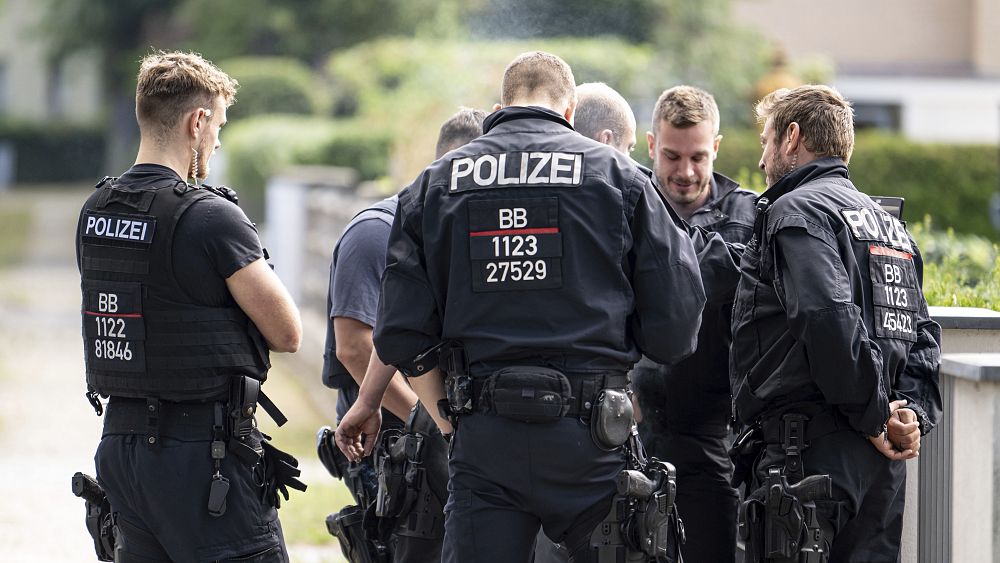
Another group within Germany’s security structures has been found to be inclined toward Nazi imagery. Recklinghausen officials are concerned by this incident, the second in recent months.
The discovery was made after searches in North Rhine-Westphalian region.
The five men, aged 22 and 25, are suspected to have exchanged Nazi symbols in chats and possessed child pornography during their training, according to Annette Milk, the chief public prosecutor investigating the case.
Three of the accused belong to the police headquarters in Recklinghausen, one each to the police authorities in Kleve and Borken.
According to Milk, they came across these chats during investigations into a sixth suspect. The public prosecutor’s office has charged the now-former police officer with exchanging right-wing extremist symbols in chats and possessing and distributing child pornography. After completing his training, he worked for a short time at the police headquarters.
The homes of three police officers were searched last week.
“The allegations shocked me. In criminal law, the presumption of innocence also applies here. Nevertheless, the allegations are so serious that after examining each individual case, I immediately banned the three officers from conducting official business,” Friederike Zurhausen, the police chief of Recklinghausen, said in a statement.
The police officers committed these acts while they were still in training as part of their dual bachelor’s degree.
The Interior Minister of the German state of Nord Rhine-Westphalia, Herbert Reul, described the officers as having shown character and moral flaws unsuitable for uniformed officers.
“Anyone who disseminates content as it is now in the room raises considerable doubts about his character suitability. The four pronounced bans on conducting official business and the internal implementation are therefore the right consequence at the moment,” he said in a statement.
Strict guidelines for social media platforms
Reul insisted that young officers, just like senior members of the police force, are just as liable for their actions.
“Young civil servants, like older ones, must stand up for justice, law and the values of our constitution without a shadow of a doubt,” he continued.
German law explicitly prohibits publicly denying the Holocaust and disseminating Nazi propaganda, both online and in public forums. This includes sharing images such as swastikas, wearing SS uniforms and making statements in support of Hitler.
The law also establishes strict guidelines for how social media companies must moderate hate speech and report threats.
Several far-right terror attacks in 2019 and early 2020 prompted German authorities to warn of escalating extremism, which led to these hate-speech laws being tightened last year.
This is not the first time German police were confronted with such a scandal.
According to the latest ministry information from the end of July, the North Rhine-Westphalian police have suspended or penalised 105 incidents of right-wing extremist behavior over the past six years.